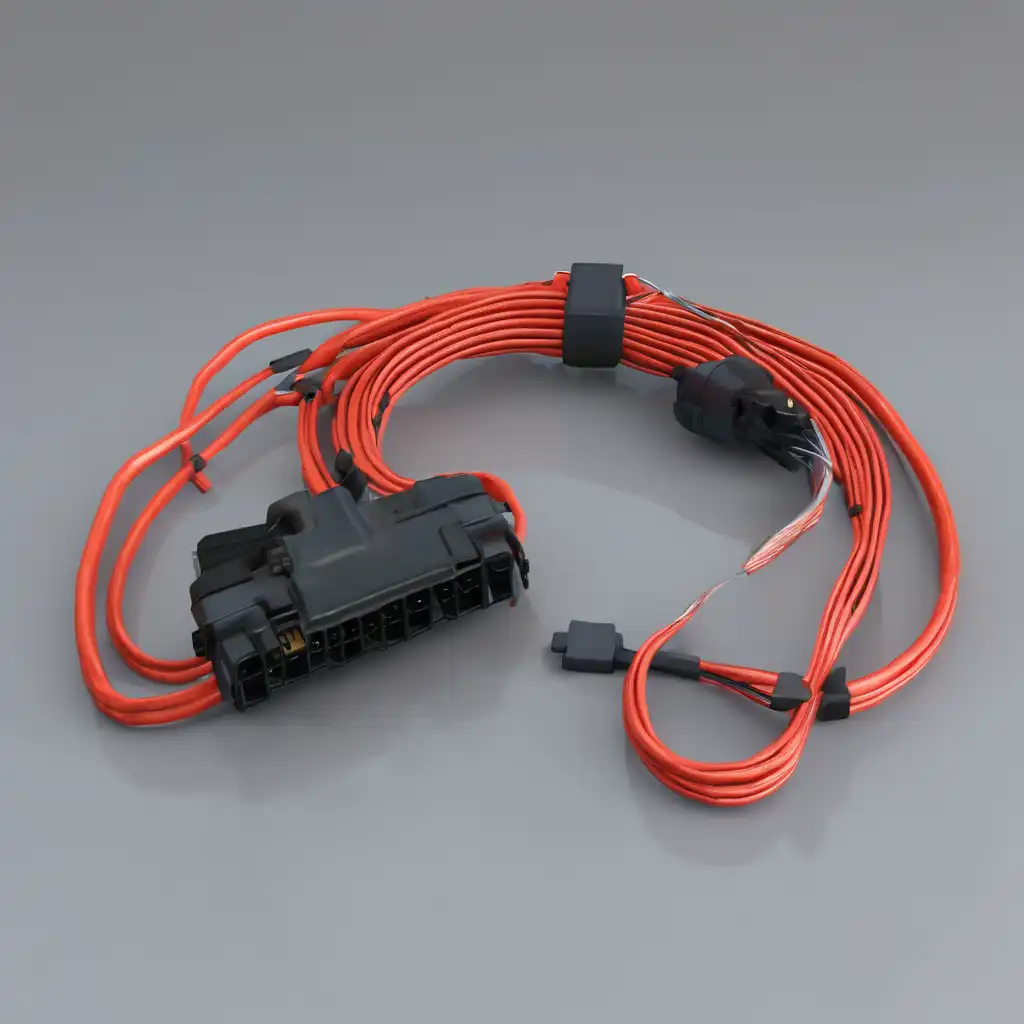Auto Harnesses are an integral part of modern vehicles, acting as the nervous system that connects various electrical and electronic devices. As a specialized automotive wiring harness manufacturer, we understand the importance of choosing the right type of harness to ensure the seamless operation of your vehicle’s electrical system. Various kinds of Auto Harnesses are designed for a specific application and function. Here, we explore the different types of auto harnesses available on the market and their unique features.
- Chassis Wiring Harness:
Chassis harnesses, also known as body harnesses, are among the most common types of Auto Harnesses. It runs through the entire body and connects to various electrical components such as headlights, taillights, and interior lights. The primary function of a chassis wiring harness is to distribute power and signals to multiple parts of the vehicle to ensure that the primary systems operate efficiently.
Features:
Rugged insulation to withstand harsh environmental conditions.
Fixed connectors to ensure reliable performance.
Customizable to fit different vehicle models.
2. Engine Harness:
Engine wiring harnesses are designed for the engine compartment and connect various engine sensors, actuators and control units. This type of harness plays a vital role in engine performance and efficiency.
Features:
High-temperature resistance to withstand the heat generated by the engine.
Chemical-resistant materials to cope with oil and fuel exposure.
Precision-engineered to ensure compatibility with a wide range of engine components.
3. instrument panel wiring harness:
The instrument panel wiring harness connects all electrical components within the instrument panel, including the instrument panel, infotainment system, climate controls, and various switches. Considering the complexity of modern dashboards, this type of harness combines functionality with ease of installation.
Features:
Flexible design to fit into tight spaces behind the dashboard.
High-quality connectors for secure and reliable connections.
Organized layout to simplify installation and maintenance.

4. HVAC Wiring Harness:
The harness of the HVAC(Heating, Ventilation, and Air Conditioning) is specifically designed to connect to the vehicle’s HVAC system. The harness ensures that the vehicle’s heating, cooling and air circulation functions operate efficiently.
Features:
Insulation withstands temperature fluctuations.
Corrosion-resistant connectors and terminals ensure long-term reliability.
Customized configurations to fit a variety of HVAC systems.
5. Battery Harness:
The battery wiring harness is critical for connecting the vehicle’s battery to the electrical system. The harness handles high current loads and ensures efficient power distribution throughout the car.
Features:
Heavy-duty cables are designed to carry high current loads.
Advanced insulation prevents short circuits and electrical fires.
High-quality terminal connectors provide a secure connection to the battery and electrical system.
6. Transmission Harness:
The transmission harness connects the transmission control module to the various sensors and actuators in the transmission system. This harness is key in ensuring smooth shifting and optimal transmission performance.
Features:
High temperature and abrasion-resistant materials.
Safe and reliable connectors to withstand vibration.
They are customized to fit specific transmission models.
7. Telematics Harness:
Telematics harnesses are becoming increasingly important with the rise of connected cars. These harnesses connect various communication modules, GPS units and antennas to enable advanced telematics functions such as navigation, remote diagnostics and emergency assistance.
Features:
Shielded cables prevent electromagnetic interference.
High-quality connectors ensure reliable communication signals.
Durable materials withstand environmental exposure.
8. Safety Harness:
Safety wiring harnesses are designed to connect the various safety systems in a vehicle, such as airbags, seatbelt pre-tensioners and sensors. Given their critical role in vehicle safety, these harnesses are manufactured to the highest standards.
Features:
Rugged and reliable connectors ensure rapid deployment of safety systems.
Thermally stabilized materials work well in extreme conditions.
Complies with stringent safety standards and regulations.
In conclusion, choosing the right type of automotive wiring harness is critical to ensuring your vehicle’s electrical system’s reliability, efficiency and safety. Each type has unique features and applications, from chassis and engine wiring harnesses to specialized harnesses for telematics and security systems. As a specialized automotive wiring harness manufacturer, we pride ourselves on providing high-quality custom wiring harness solutions that meet the diverse needs of the automotive industry. By understanding the different types of Auto Harnesses available, we can better customize our products to meet the specific requirements of each vehicle model, ensuring optimal performance and satisfaction for our customers.
Choosing the correct wiring harness not only contributes to the functionality of the vehicle but also to the overall driving experience.



